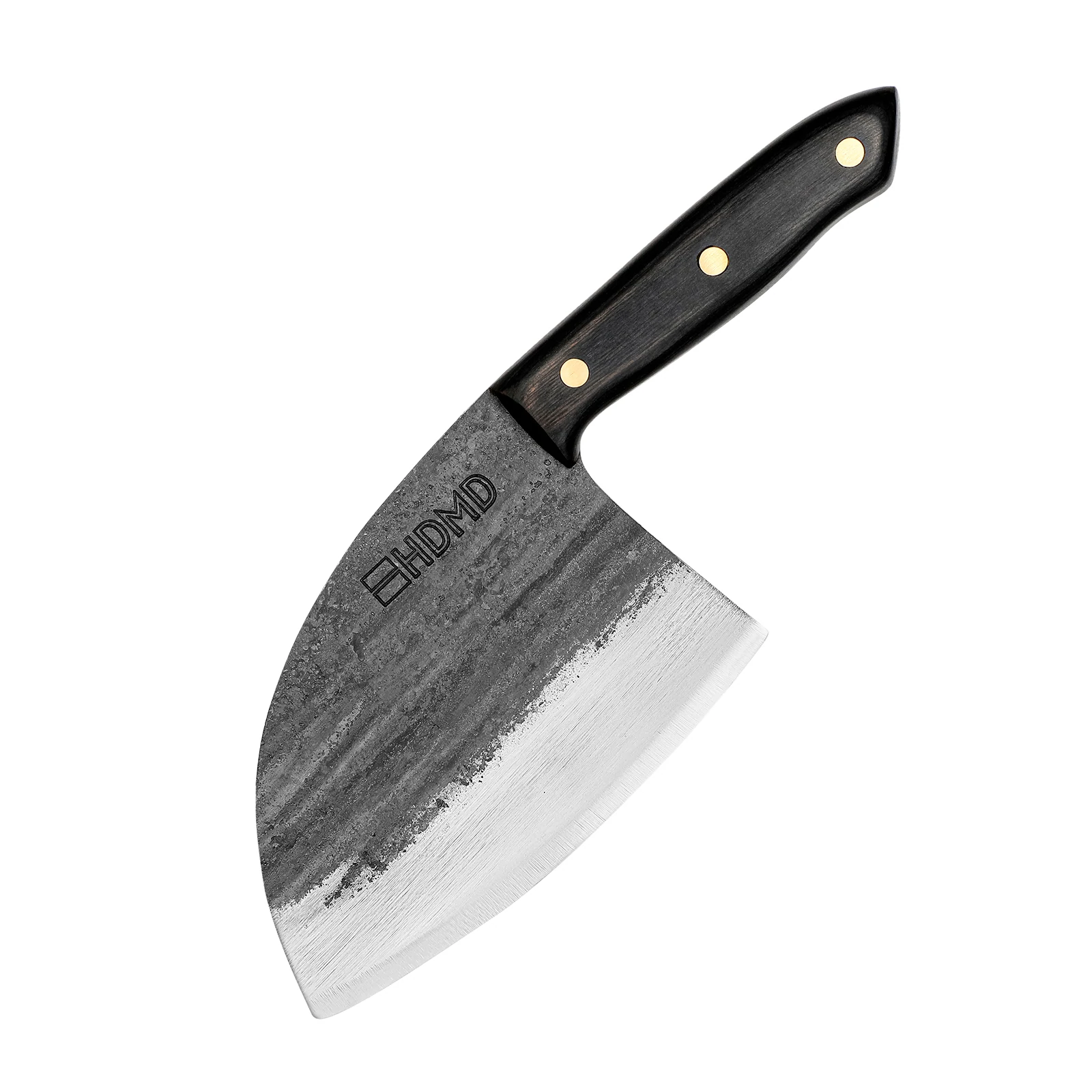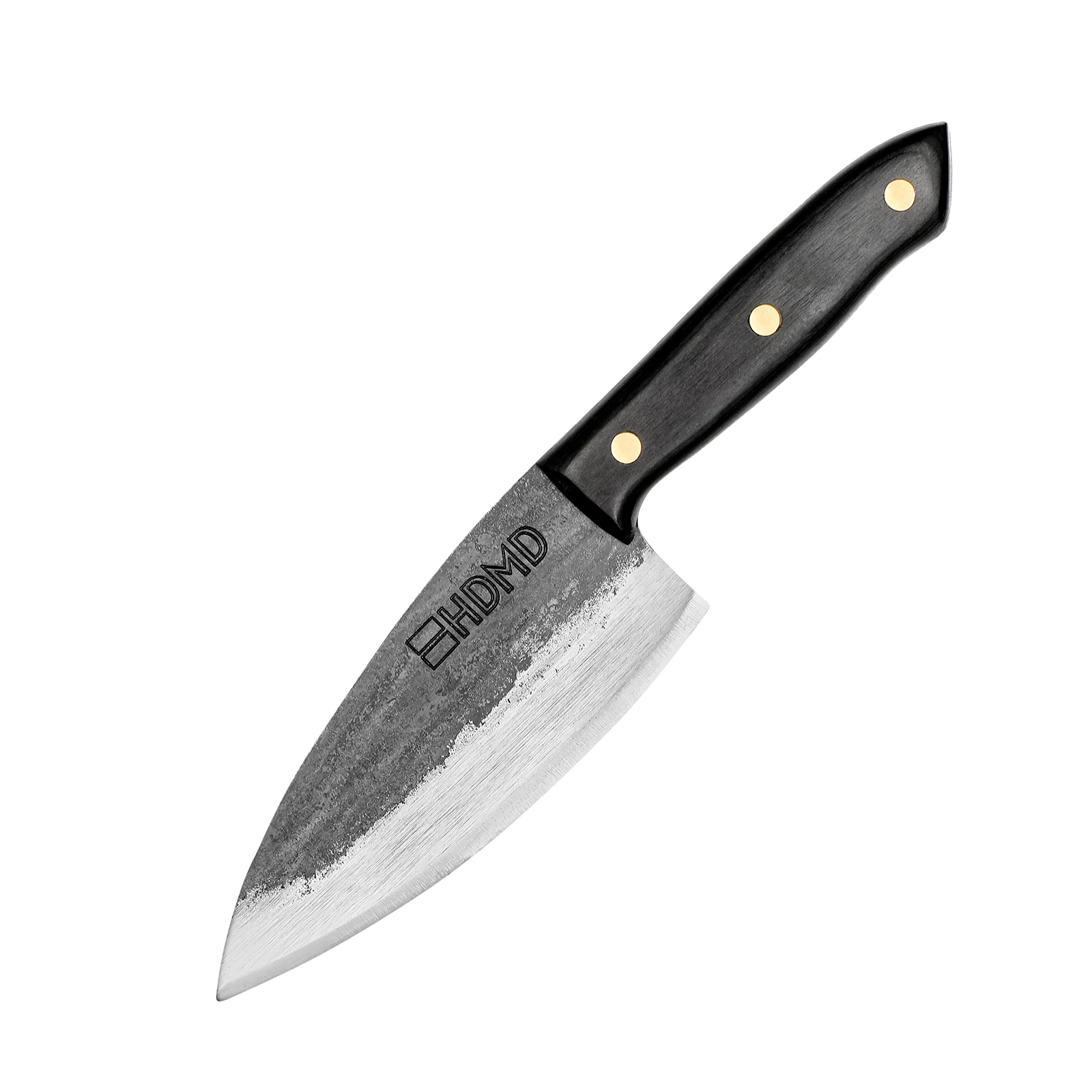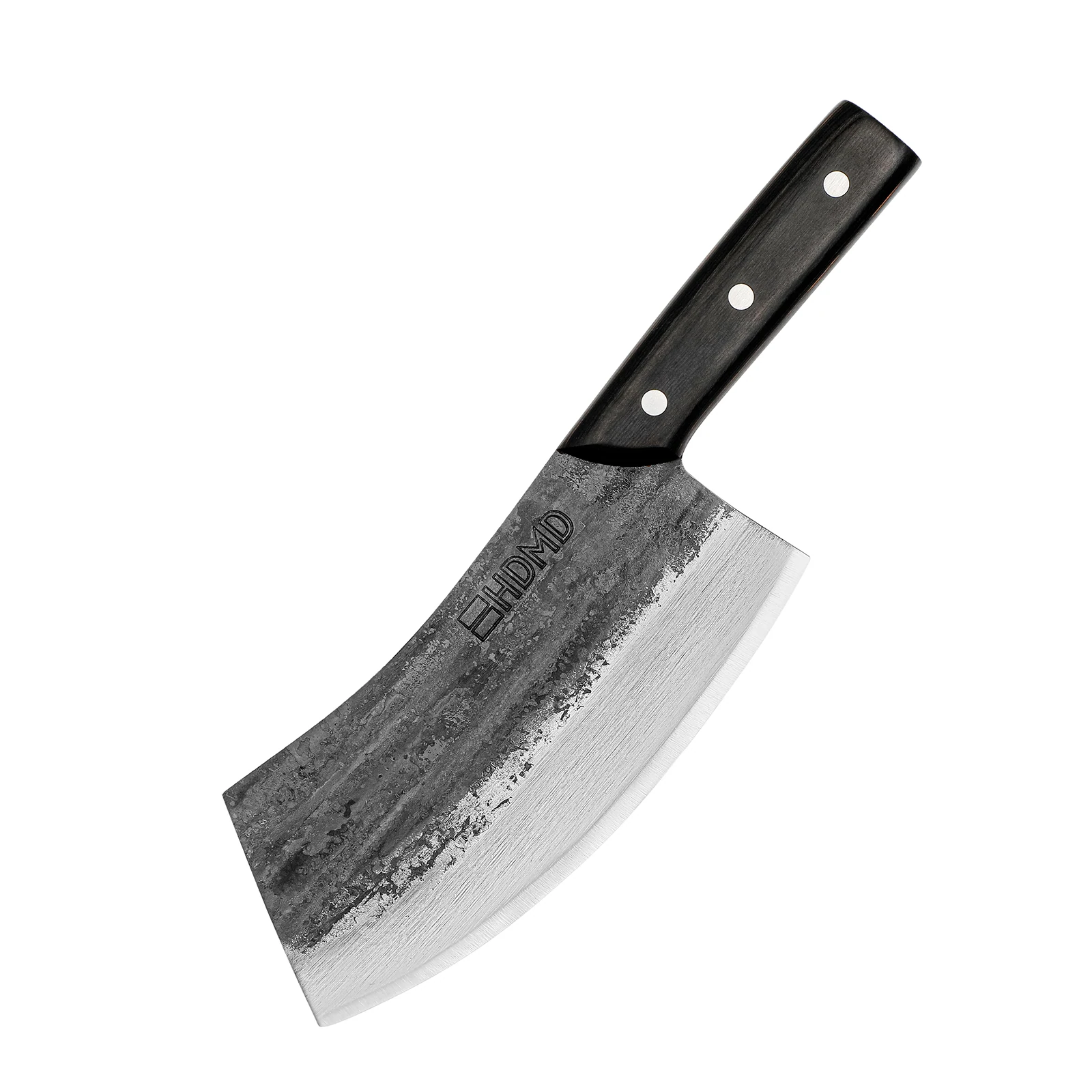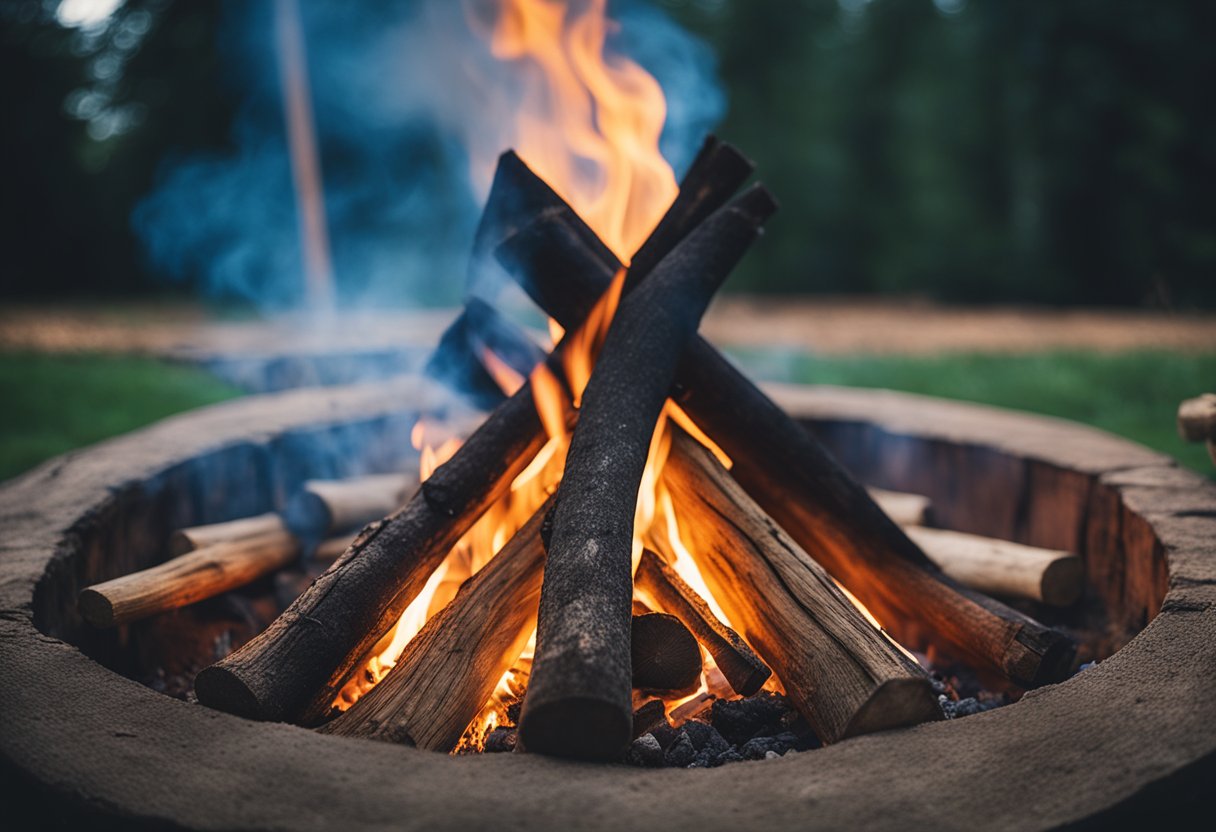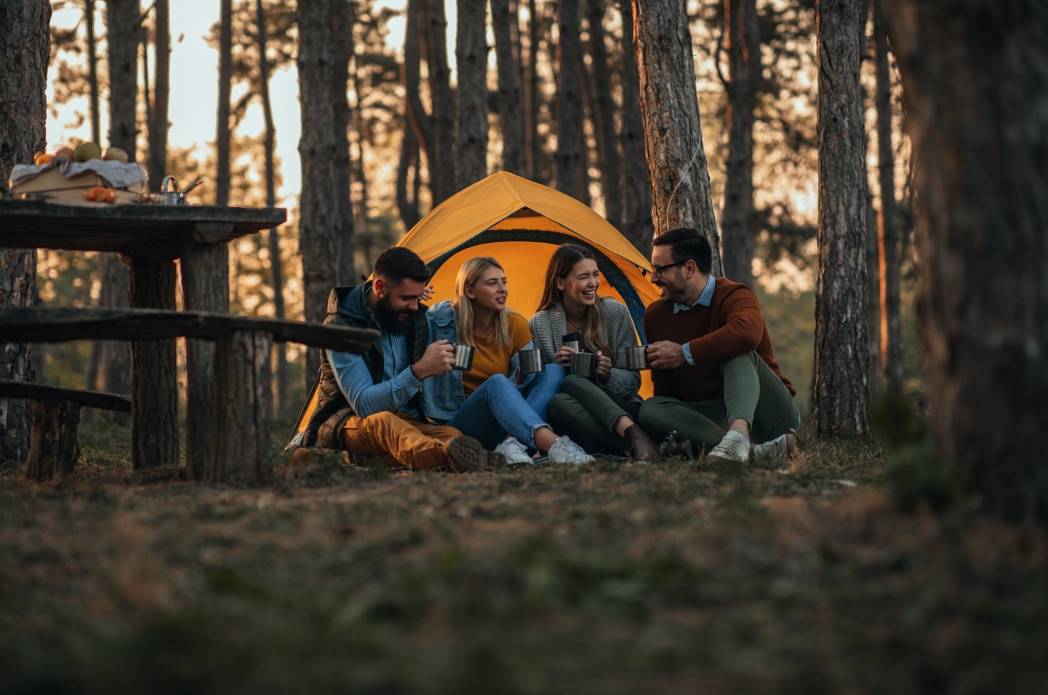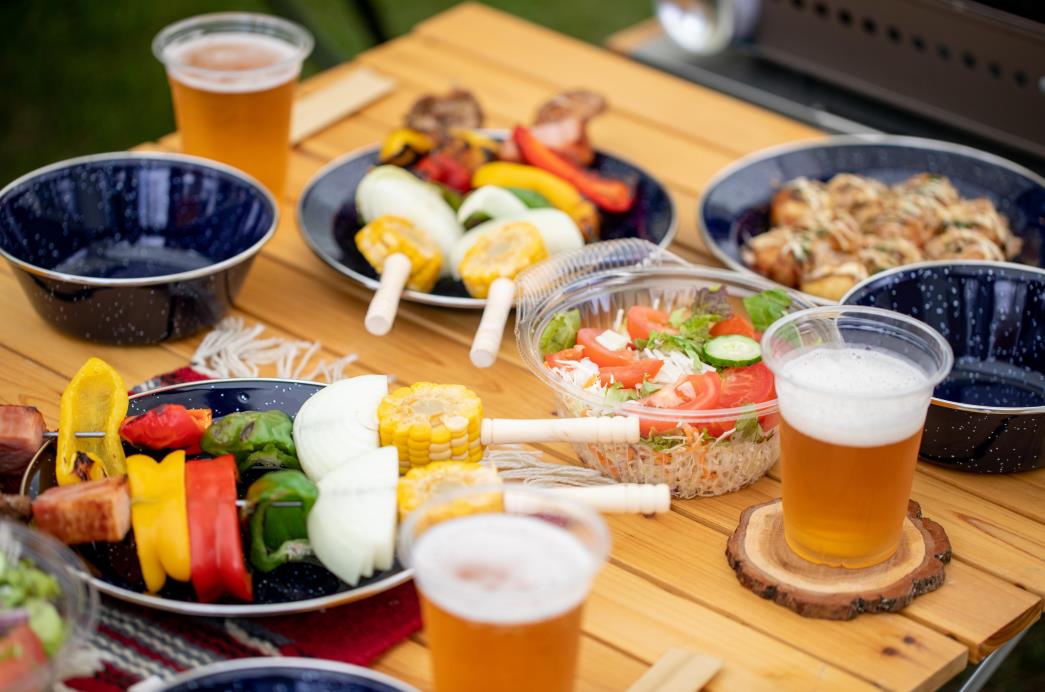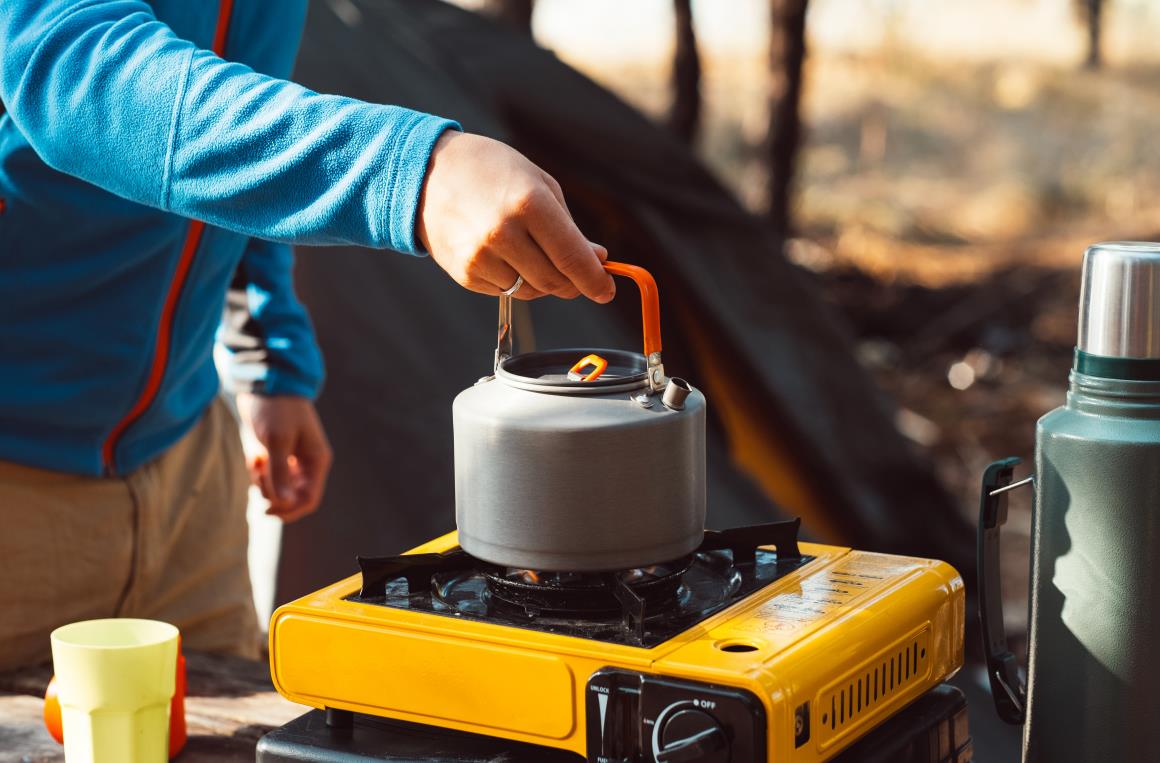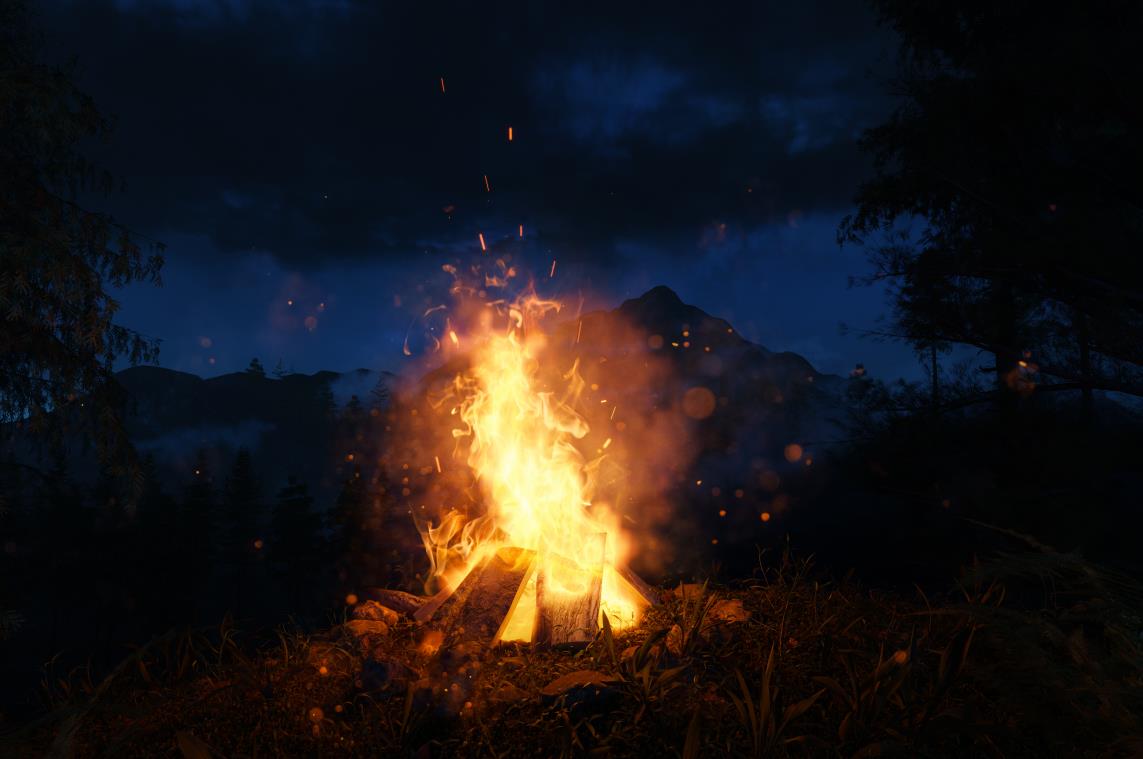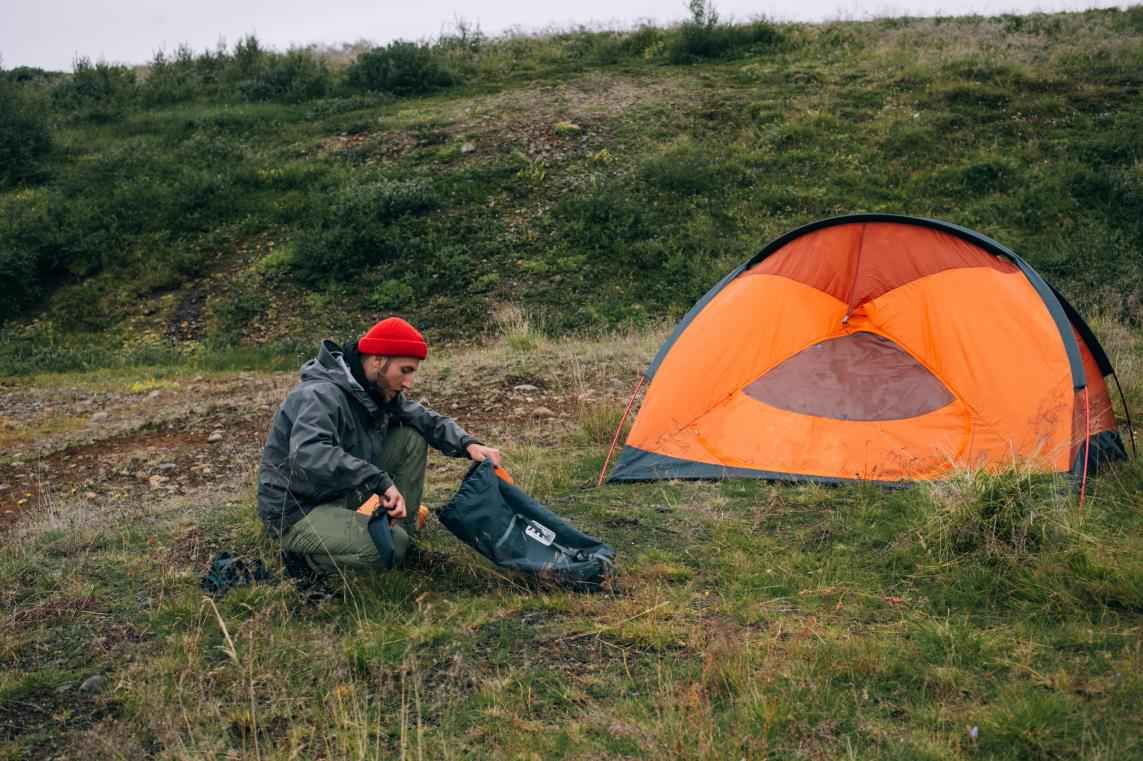Camping and backpacking diverge in their approach to reaching the destination. Camping, for one, allows for the convenience of driving directly to your chosen spot. On the other hand, backpacking entails shouldering the responsibility of carrying all your necessary gear. The equipment that you will later use to build the campsite.
Very much like choosing hard or story mode in a RPG, it’s a choice between enjoying your trip to the maximum and the thrill of self-sufficiency. Whether you are still a beginner hesitating at how to choose their adventure, or a seasoned camper seeking a change of pace, It’s important to understand the contrasting nature of backpacking and camping. As it’ll help you choose to experience where your mind leads you at the moment.
In this guide, we’ll dive into the world of backpacking and camping. Providing tips, recommendations, and insights to assist you in making an informed decision. So, lace up your boots or pack up your car, because it’s time to explore the great outdoors, your way.
Table of contents
What’s camping?
Camping is a classic outdoor activity. It brings the image of roasting s’mores over a crackling campfire; sleeping under a starry sky, and waking up to the sound of nature.
Compared to backpacking, you have the luxury of driving right up to your chosen campsite. Less cardio means it’s a more accessible option for families, beginners, or those who simply want a more relaxed trip. Depending on your destination, campgrounds may offer designated areas with amenities such as picnic tables, fire pits, and even bathroom facilities.
Camping provides a range of options to suit different preferences and comfort levels. From car camping, where you set up your tent near your vehicle, to RV camping, where you can bring along a mobile home. Even backyard camping in your neighborhood. There are plenty of ways to enjoy the great outdoors while still enjoying some familiar conveniences.
To make the most of your camping experience, the following are some essential tips, tools, and methods to consider.
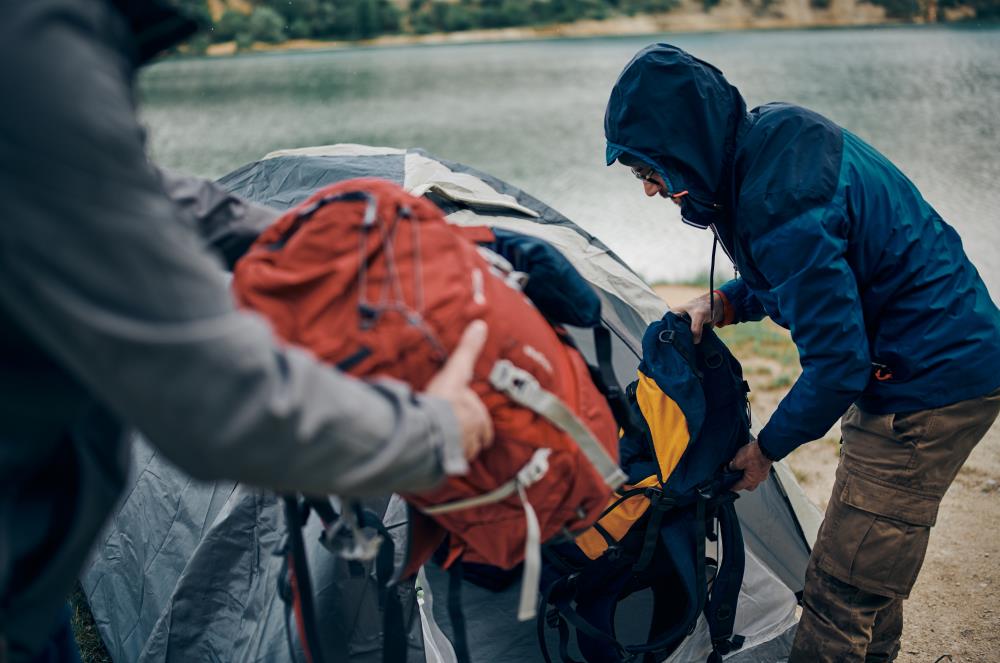
Tips for camping
- Choosing the Right Campsite: Research and select a campsite that aligns with your preferences. Look for factors such as proximity to water, hiking trails, or sceneries.
- Safety and Leave No Trace: Familiarize yourself with the principles of Leave No Trace, which emphasizes responsible outdoor ethics. Ensure you follow safety guidelines, including proper food storage, wildlife awareness, and campfire safety.
Tools for camping
- Tents and Sleeping Gear: Invest in a reliable tent that suits your needs, considering factors like capacity, weather resistance, and ease of setup. Don’t forget to bring comfortable sleeping bags or air mattresses for a good night’s sleep.
- Campfire Essentials: Building a campfire is a quintessential part of camping. Bring firewood, matches or lighters, and fire starters to ensure you can easily ignite a cozy fire for warmth, cooking, and relaxation.
- Outdoor Cooking: Pack a portable camping stove or grill along with essential cooking utensils, pots, and pans. Plan and prep your meals in advance, considering easy-to-cook options and food that travels well.
Whether you’re a camping enthusiast or a newbie venturing into the wilderness, camping provides an excellent opportunity to reconnect with nature and create lasting memories with loved ones. But if you’re up for a more adventurous challenge, it’s time to explore the world of backpacking.
Best Camp Cooking Equipment
Get 11% off and free shipping – limited time only!
What’s backpacking?
If you’re seeking a more immersive and adventurous outdoor experience, backpacking might be the perfect choice.
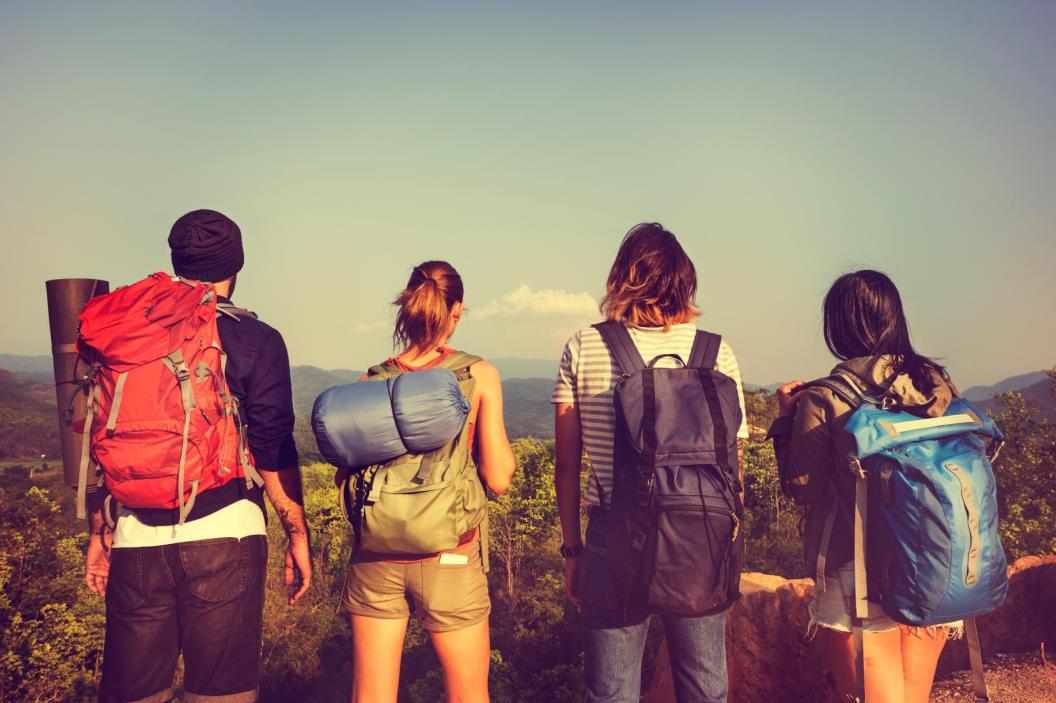
Backpacking allows you to explore remote and rugged areas that are not easily accessible by vehicles or traditional campsites. It’s an opportunity to break free from the hectic pace of daily life and fully embrace the exquisite allure of the natural world.
Whether you’re trekking through breathtaking mountain ranges, traversing dense forests, or exploring serene backcountry trails, backpacking offers a unique sense of freedom and self-reliance.
With the flexibility to hike for miles, backpacking a chance to experience solitude, connect with nature on a deeper level, and challenge yourself both mentally and physically.
Tips for backpacking
- Start with shorter trips: If you’re new to backpacking, consider starting with shorter trips to build your skills and endurance. Gradually increase the duration and difficulty of your journeys as you gain more experience and confidence.
- Be mindful of wildlife: Research the wildlife in the areas you’ll be backpacking in and learn how to safely coexist with them. Store food properly to prevent attracting animals, keep a safe distance, and avoid feeding or approaching wildlife.
- Leave No Trace Principles: As with camping, practice Leave No Trace principles while backpacking. Minimize your impact on the environment, dispose of waste properly, and respect wildlife and local regulations.
Tools for backpacking
- Proper clothing and footwear: Dress in layers and pack clothing suitable for the expected weather conditions. Invest in sturdy and comfortable hiking boots that provide ankle support and traction.
- Lightweight and compact gear: Opt for lightweight camping gear, including a lightweight tent, sleeping bag, and cooking equipment. Every ounce counts when you’re carrying everything on your back.
- Navigation tools: Carry a reliable map, compass, or GPS device to navigate your way through unfamiliar terrain. Familiarize yourself with the route beforehand and always have a backup plan.
- Water and food: Plan your water and food supply carefully. Consider water purification methods, lightweight and calorie-dense meals. Pack some food and snacks that provide sustained energy.
- Choosing the right backpack: Invest in a quality backpack that fits comfortably and distributes weight evenly. Look for adjustable straps, a supportive hip belt, and ample storage compartments.
Backpacking offers a thrilling and immersive experience. It allows you to push your limits, explore untouched landscapes, and cultivate a deep appreciation for the natural world. However, before you choose between camping and backpacking, it’s important to weigh the pros and cons of each.
Backpacking vs camping: A direct comparison
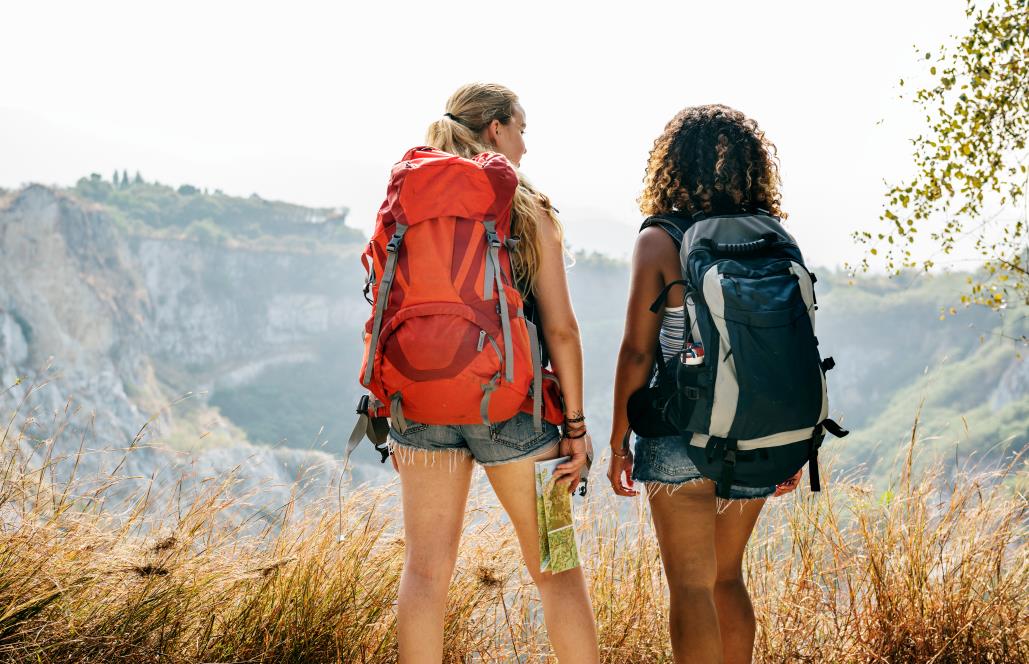
We made a comparison chart to help you make an informed decision between camping and backpacking. Check it out for key differences:
| Backpacking | Camping | |
| Mode of Travel | Hiking or trekking long distances with gear on your back | Driving to the campsite with gear in your vehicle |
| Accessibility | Remote and rugged areas, off-the-beaten-path | Campgrounds and designated sites near parking areas |
| Gear | Lightweight and compact camping gear | More spacious and comfortable gear |
| Self-Sufficiency | Requires self-reliance and advanced outdoor skills | Access to amenities and convenience |
| Exploration | Opportunities to explore secluded and untouched areas | Enjoyment of designated campsites and established areas |
| Physical Demand | Physically challenging, requiring endurance and stamina | Less physically demanding, suitable for all fitness levels |
| Wilderness Experience | Immersive and adventurous, close to nature | Connection with nature, but with more conveniences |
While backpacking and camping share the love for the great outdoors, they differ significantly in terms of experience, accessibility, gear requirements, and level of self-sufficiency.
Backpacking offers the thrill of venturing deep into nature, carrying all your essentials and being self-reliant. It allows for exploration of remote and rugged areas that are not easily accessible by vehicles.
On the other hand, camping provides a more accessible and convenient experience. With the ability to drive right up to your campsite, you have access to amenities and enjoy a more comfortable setup.
How to choose between backpacking and camping
Ultimately, the choice between backpacking and camping depends on your preferences, level of comfort, and the type of experience you are looking for.
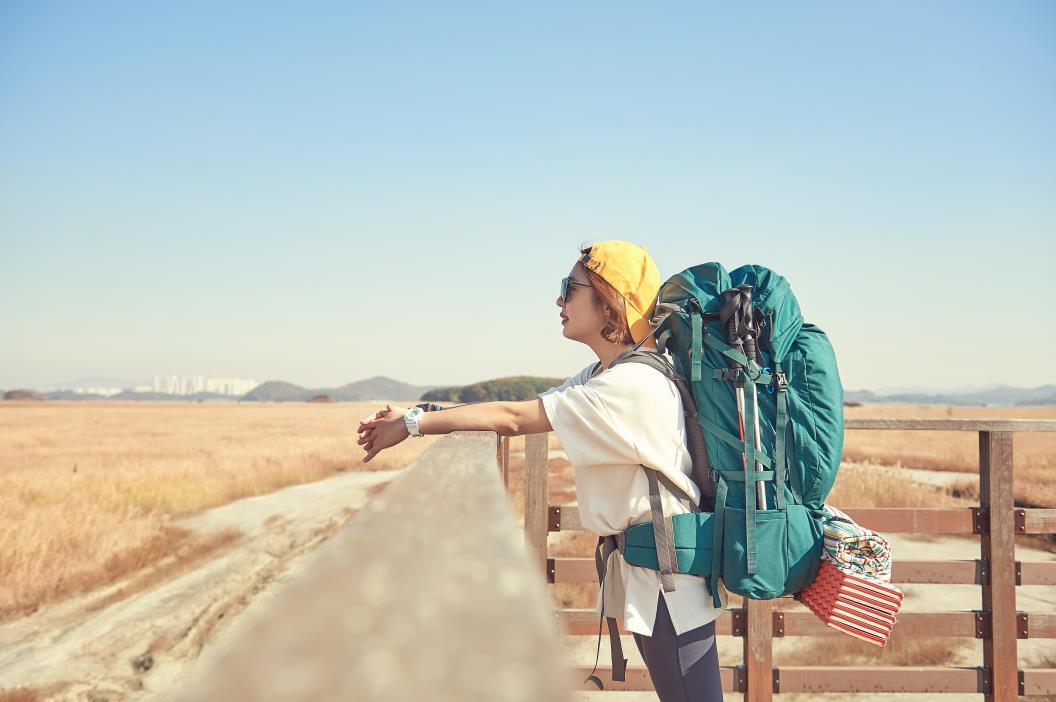
Backpacking is an extreme exercise that challenges you physically and mentally. But provides a more exciting experience and great sense of accomplishment. If this is the sort of thing you are craving for, the solitude, the excitement, and the thrill of it all, backpacking if your answer.
However, if you prefer a more laid-back and convenient outdoor experience, camping provides a balance between nature and comfort.
If you still can’t decide which option suits you the best, here are some pointers that we boiled down:
- Experience level: Evaluate your outdoor experience and skill set. Backpacking requires more advanced outdoor skills, physical endurance, and navigation abilities. Camping, on the other hand, is more beginner-friendly and suitable for all experience levels.
- Comfort vs. adventure: Determine the level of comfort you desire during your outdoor experience. If you prefer amenities, convenience, and a more relaxed atmosphere, camping provides a comfortable retreat. If you seek adventure, solitude, and the thrill of exploring remote and rugged landscapes, backpacking offers a more immersive experience.
- Time and distance: Consider the amount of time you have available and the distance you’re willing to travel. Backpacking often involves longer trips and more extensive planning, while camping can be a quick getaway or a family-friendly weekend excursion.
- Terrain and accessibility: Think about the type of terrain you want to explore. Backpacking allows you to venture into challenging terrains and reach secluded areas. Camping, on the other hand, provides access to established campgrounds and designated sites.
- Gear and preparation: Assess your willingness to invest in specialized backpacking gear. They are not cheap to come around. Camping generally requires less specialized gear and allows for more spacious and comfortable setups.
In Conclusion
Now that you have a clear understanding of the two activities, it’s time to plan your next adventure. Whether you’re seeking adrenaline-pumping hikes or peaceful nights under the stars, the choice is yours. So go ahead, pick your path, your and embrace the wonders of nature in a way that resonates with you.
If a camping feast is imperative, don’t forget to bring a high quality knife that is designed to withstand tough outdoor environments. Check out our collection for more information, and stay tuned for more camping blogs!

